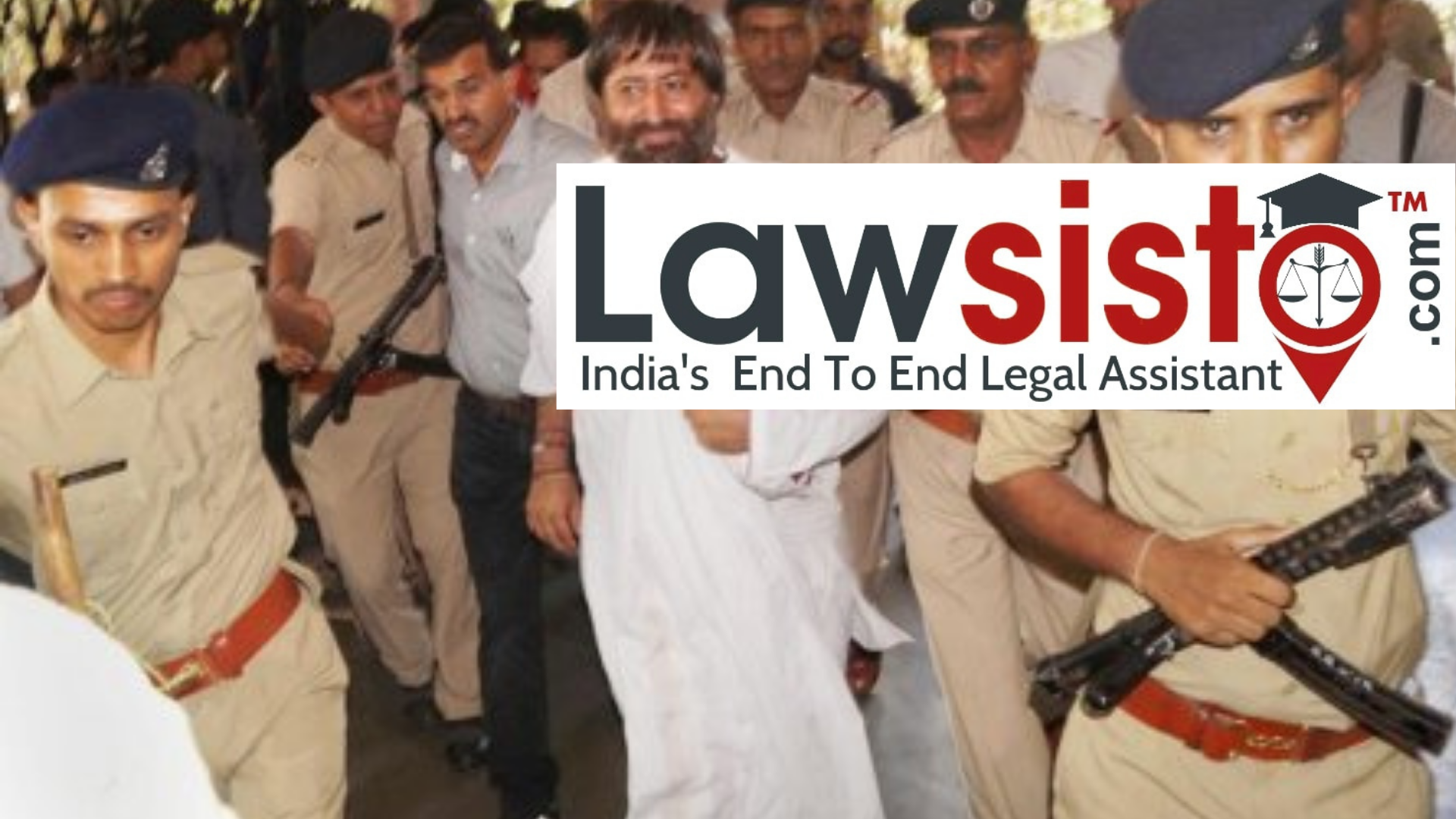Latest News
NARAYAN SAI CASE: SUPREME COURT STATES DIFFERENCE BETWEEN FURLOUGH AND PAROLE

In a landmark judgment, the Supreme Court on 20 October 2021 described the differences between parole and furlough. The top court summarised that
(i) Both parole and furlough are conditional releases.
(ii) Parole can be granted in case of short-term imprisonment whereas in furlough it is granted in case of long-term imprisonment.
(iii) Duration of parole extends to one month whereas in the case of furlough it extends to fourteen days maximum.
(iv) Parole is granted by Divisional Commissioner and furlough is granted by the Deputy Inspector General of Prisons.
(v) For parole, a specific reason is required, whereas furlough is meant for breaking the monotony of imprisonment.
BACKGROUND
The following judgment is a result of a very famous case. Narayan Sai, the so of Asharam Bapu was convicted along with his father in a rape case by a Surat Court in 2019. He was accused of rape by two women and was convicted of the same. And he was sentenced to life imprisonment.
However, he had asked for a furlough in December 2020 to visit his ill mother. He was granted a two weeks furlough.
He was granted another temporary bail from 31st January 2020 to 3rd February 2020 to visit his still ailing mother. He had again applied for a furlough in March 2020, but it was rejected by the DGP for various reasons. However, the High Court of Gujarat granted the furlough in June. The High Court stated that even though the DGP rejected the application, the court accepted it as the reasoning provided by the DGP was not enough. The court also stated that in the previous instances, nothing untoward had happened while Narayan Sai was on furlough.
The government of Gujarat moved to the Supreme Court against this decision of the High Court.
HELD
The Supreme Court in this case laid down the grounds when a prisoner may be granted a furlough:
(1) A Prisoner, who is sentenced to imprisonment for a period exceeding one year but not exceeding five years, may be released on furlough for two weeks at a time for every year of actual imprisonment undergone.
(2) A Prisoner, who is sentenced to imprisonment for a period exceeding five years may be released on furlough for two weeks at a time for every two years of actual imprisonment.
Prisoners shall not be considered for release on furlough:-
(1) Habitual prisoners.
(2) Prisoners convicted of offenses under sections 392 to 402 (both inclusive) of the Indian Penal Code.
(3) Prisoners convicted of an offense under the Bombay Prohibition Act, 1949
(4) Prisoners whose release is not recommended in Great Bombay by the Commissioner of Police and elsewhere, the District Magistrate on the ground of public peace and tranquility.
(5) Prisoners who, in the opinion of the Superintendent of the prison show a tendency towards crime.
(6) Prisoners whose conduct is in the opinion of the Superintendent of the Prison, not satisfactory enough.
(7) Prisoners confined in the Ratnagiri Special Prison [other than prisoners transferred to that prison for jail services.]
(8) Prisoners convicted of offenses of violence against person or property committed for political motives, unless the prior consent of the State Government to such release is obtained.
Hence, a bench consisting of Justice D.Y. Chandrachud held that "The respondent and his father have a mass following of persons who owe loyalty to them and there is a reasonable apprehension of disruption of public peace and tranquility. During the trial, attempts have been made to bribe public officials. The conduct after the trial, in jail, is not above reproach. The respondent was earlier this year to accommodate a genuine need to attend to his mother's health at the relevant time. Based on this, we are unable to agree with the line of reasoning of the High Court".
The court stated that the High Court did not deal with the following submissions, it only took notice of the good behavior of Sai and the illness of his mother.
Hence, keeping in view the above reasons, the Supreme Court allowed the plea of the Government of Gujarat.
Document:



































































































